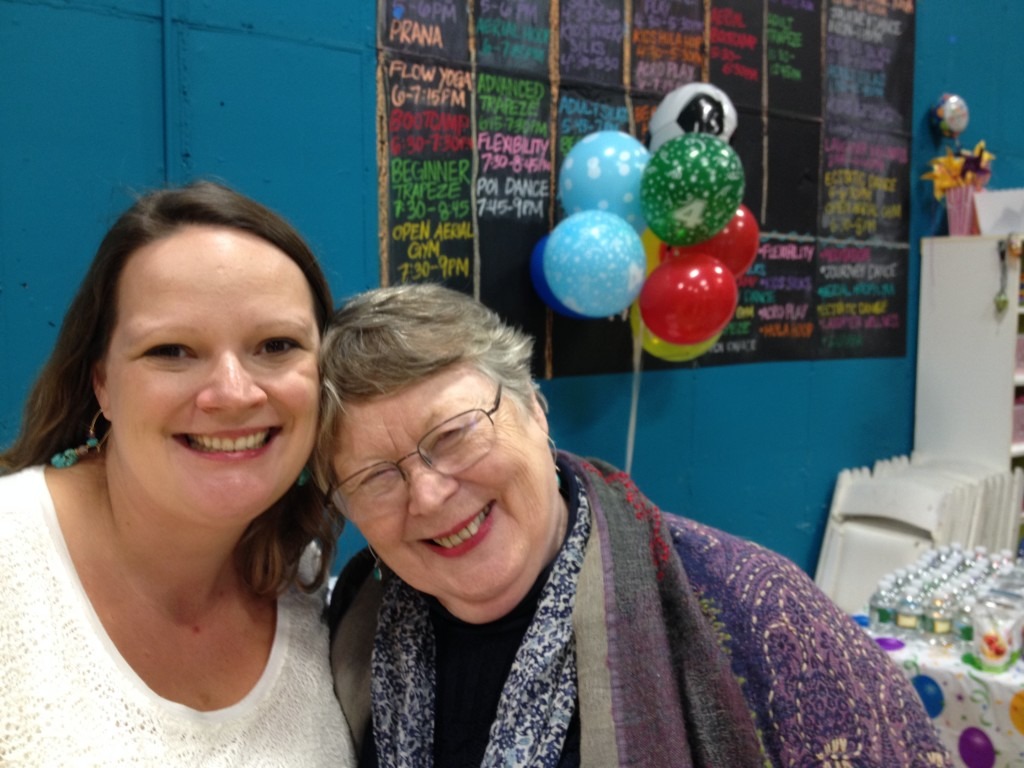Today marks the 50th Anniversary of the Voting Rights Act of 1965 (VRA). The VRA is federal legislation that prevents states from discriminating against minority voters. President Johnson announced the bill after the tragedies in Selma, AL and congress pushed it through in relatively short time to respond to the immediate needs of a changing nation. Martin Luther King, Jr., Rosa Parks and others stood by Johnson as he signed the bill, celebrating a great victory for democracy.
While the aforementioned leaders of the Civil Rights Movement inspired change and deserve our great thanks, today I’d like to honor the tens of thousands of volunteers who worked tirelessly for many years to achieve and enact the VRA. One of them is close to my heart, my mom, Isabella Thomas.
Isabella, raised in Knoxville, TN, stepped out at an early age to engage in the Civil Rights Movement. In Knoxville she participated in the first local cafeteria “walk in” in the early 1960s. She later traveled to DC as a volunteer for the March on Washington for Jobs and Freedom to serve food and beverages on the sidelines to the thousands that came across the country to stand for civil rights. Isabella went on to work as a Southern Christian Leadership Conference (SCLC) volunteer, both in the Atlanta office and throughout the south, focusing on registering minority women in rural communities. An active participant in the Poor People’s Campaign, she laid on the floor of the DC office during drive-by shootings – all inspired by fundamental belief in democracy and equality. I’ve met a handful of rock stars over the years, but none stand out to me like my mom.
This week I talked with my mom to ask difference the VRA made in her role as a volunteer for SCLC. She shared a few reflections with me.
How did the Voting Rights Act change the Civil Rights Movement?
After the Voting Rights Act things changed because power was moved into the hands of the people. People felt it – Power to the People – it was an enlivening and joyful time.
And the work you did?
Poor people, black or white, folks who lived on daily wages and had been pushed out of democracy for generations, they didn’t vote. Just passing the Voting Rights Act didn’t change that. We had to go out into communities and explain the new law, the new way – ‘VOTE NOW’ – to get folks to the polls. They needed rides to register, rides to vote, assurances of their safety and that their voice mattered.
So that was the role of SCLC volunteers?
Today you all have the intranet [HeadCount's internal volunteer database]. We had thousands of 3X5 cards from communities across the south. The cards were commitments to volunteer – they’d write down their name, address and what they could do. The cards were later kept in the SCLC office, so if someone called and said they needed help we’d pull out the cards from that town and have a network of volunteers to do whatever was needed locally. It was a groundswell of support.
We told everyone "If you want control of the conditions of your environment, you have to vote and have people that represent you at the local level."
So it was a local push?
Absolutely, the local folks were the key to ending the hate, the violence. Sheriff, county commission, those elected affected the everyday, especially in the smaller or rural communities.
Do you credit Johnson, Selma or MLK for the Voting Rights Act?
While many people felt that change needed to happen, most believed it could not be that fast, or within their lifetimes. The groundswell of volunteers, activists that would no longer stand for racism and the denial of democracy, they made this happen over many years.
What do you think about where we are today?
After the Voting Rights Act and today, the single most important thing to stop racism is economics. We cannot have an underclass of citizens. Johnson fell short on enacting change in education and the economy – despite the repeated requests Welfare Mothers and Poor People’s Campaign. The change we hoped for has not yet been achieved.
How do you continue to have faith in the process, having worked so hard to achieve civil rights and see them broken down by the Supreme Court and states?
The people that weaken the system are the ones that take the vote – interfere with people’s vote passively or actively. Gerrymandering is the worst; it started soon after the Voting Rights Act with Nixon. But you have to believe in Democracy, in Power to the People.
So in the fight for access to elections today?
The thing to remember is that if we make it hard for one person to vote we can make it hard for anyone to vote. That cannot be.
For the past 11 years I have been a HeadCount volunteer, now working as the Volunteer Coordinator. While the time presents different challenges and methods, without question our fundamental purpose remains the same. In order to achieve “Power to the People” - a true democracy - folks have to vote. Across the country our volunteers work tirelessly to engage all citizens in the process, to register voters, follow key issues and get-out-the-vote.
Today, in honor of the VRA, I dedicate my work to my mom and the other volunteers that have fought for equality and engagement in democracy, a fundamental civil right for all citizens. Will you join me? Volunteer today!
